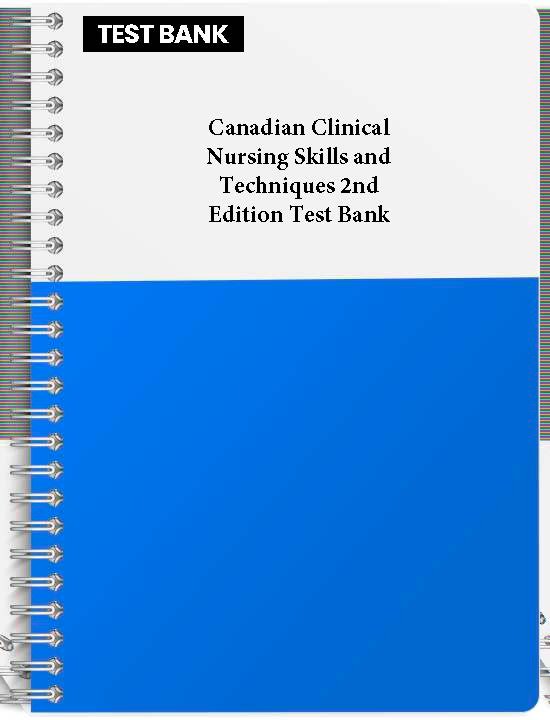Description
Medical-Surgical Nursing 8th Edition Test Bank is a comprehensive study aid for nursing students, aimed at deepening their understanding of medical-surgical nursing concepts through a wide array of questions that emphasize clinical judgment, critical thinking, and evidence-based patient care. This resource is designed to support mastery of core topics and prepare students for both classroom exams and clinical practice.
Key Features and Topics Covered:
- Clinical Assessment and Diagnosis: Questions focus on performing thorough patient assessments, interpreting clinical data, and establishing accurate nursing diagnoses across various medical-surgical conditions.
- Management of Acute and Chronic Conditions: Includes detailed questions on managing a range of conditions, from acute care interventions to long-term management of chronic diseases.
- Critical Thinking and Prioritization: Scenarios are designed to test students’ abilities to prioritize patient care, make sound clinical judgments, and respond effectively to evolving patient needs.
- Nursing Interventions and Care Plans: Covers the development and implementation of individualized nursing care plans, highlighting evidence-based interventions specific to each patient’s needs.
- Patient Safety and Quality Care: Emphasizes safe practice guidelines, including infection control, risk prevention, and quality improvement strategies for optimal patient outcomes.
- Patient Education and Health Promotion: Focuses on the nurse’s role in educating patients and families on managing health conditions, promoting recovery, and supporting lifestyle changes.
- Interprofessional Collaboration: Situational questions reflect the collaborative aspect of patient care, encouraging effective communication and teamwork with other healthcare professionals.
1. Aspects of Medical-Surgical Nursing
2. Medical-Surgical Practice Settings
3. The Nursing Process and Critical Thinking
4. Medical-Surgical Patients: Individuals, Families, and Communities
5. Health, Illness, Stress, and Coping
6. Immunity, Inflammation, and Infection
7. Fluid, Electrolyte, and Acid-Base Balance
8. Cancer
9. Pain
10. Shock
11. The Older Adult Patient
12. Falls
13. Immobility
14. Delirium & Dementia
15. Incontinence
16. Nutrition
17. Intravenous Therapy
18. Surgery
19. Ostomy
20. Palliative and Hospice Care
21. Complementary and Alternative Therapies
22. Neurological System Introduction
23. Neurological Disorders
24. Cerebrovascular Accident
25. Spinal Cord Injury
26. Respiratory System Introduction
27. Upper Respiratory Disorders
28. Acute Lower Respiratory Disorders
29. Chronic Lower Respiratory Tract Disorders
30. Hematologic System Introduction
31. Hematologic Disorders
32. Immunologic System Introduction
33. Immunologic Disorders
34. Cardiovascular System Introduction
35. Cardiac Disorders
36. Vascular Disorders
37. Hypertension
38. Digestive System Introduction
39. Upper Digestive Tract Disorders
40. Lower Digestive Tract Disorders
41. Liver, Gallbladder, and Pancreatic Disorders
42. Urologic System Introduction
43. Urologic Disorders
44. Musculoskeletal System Introduction
45. Connective Tissue Disorders
46. Fractures
47. Amputations
48. Endocrine System Introduction
49. Pituitary and Adrenal Disorders
50. Thyroid and Parathyroid Disorders
51. Diabetes and Hypoglycemia
52. Female Reproductive System Introduction
53. Female Reproductive Disorders
54. Male Reproductive System Introduction
55. Male Reproductive Disorders
56. Sexually Transmitted Infections
57. Integumentary System Introduction
58. Skin Disorders
59. Special Senses Introduction
60. Eye and Vision Disorders
61. Ear and Hearing Disorders
62. Psychobiologic Disorders
63. Substance Abuse
64. First Aid, Emergency Care, and Disaster Management










Reviews
There are no reviews yet.